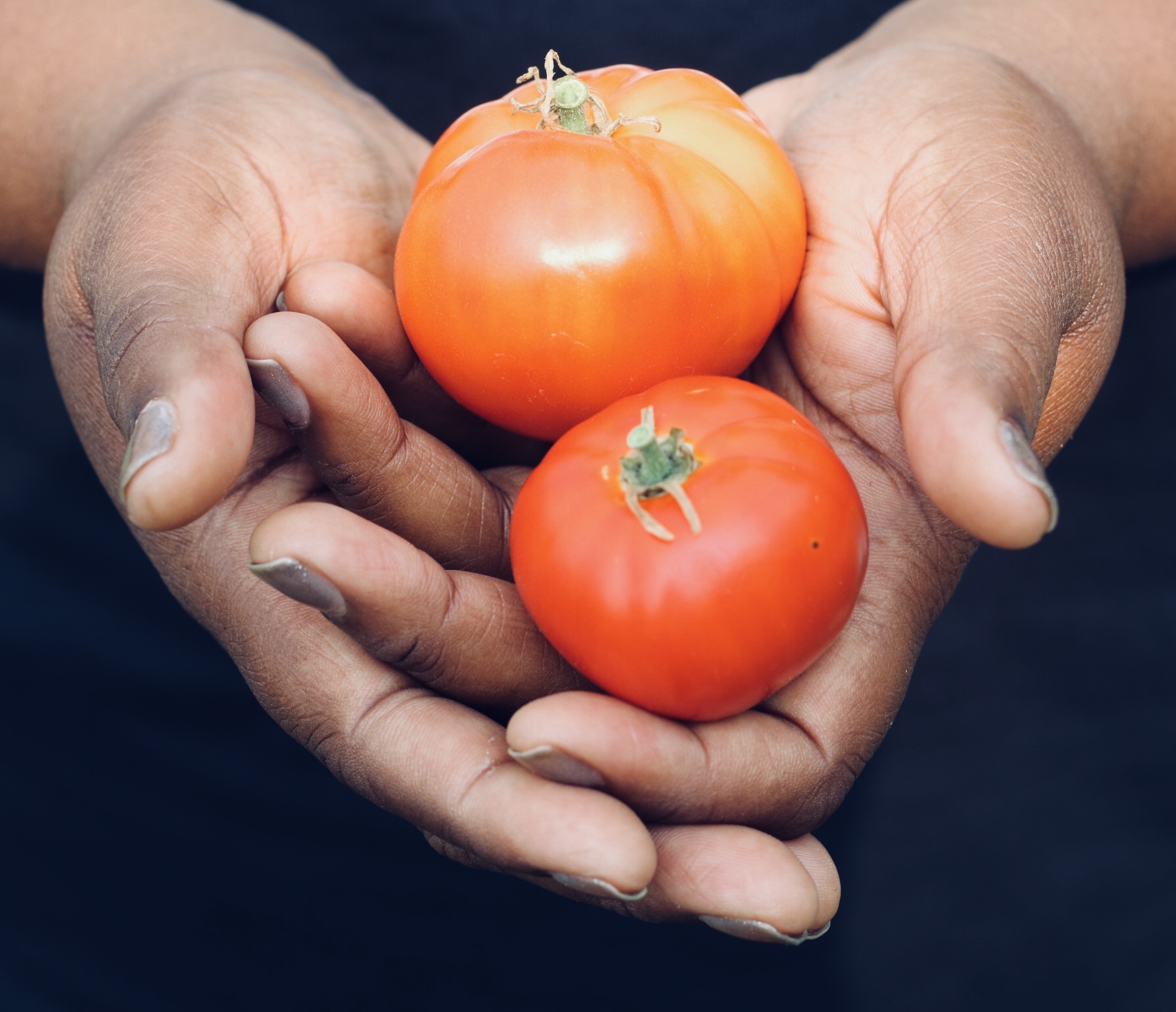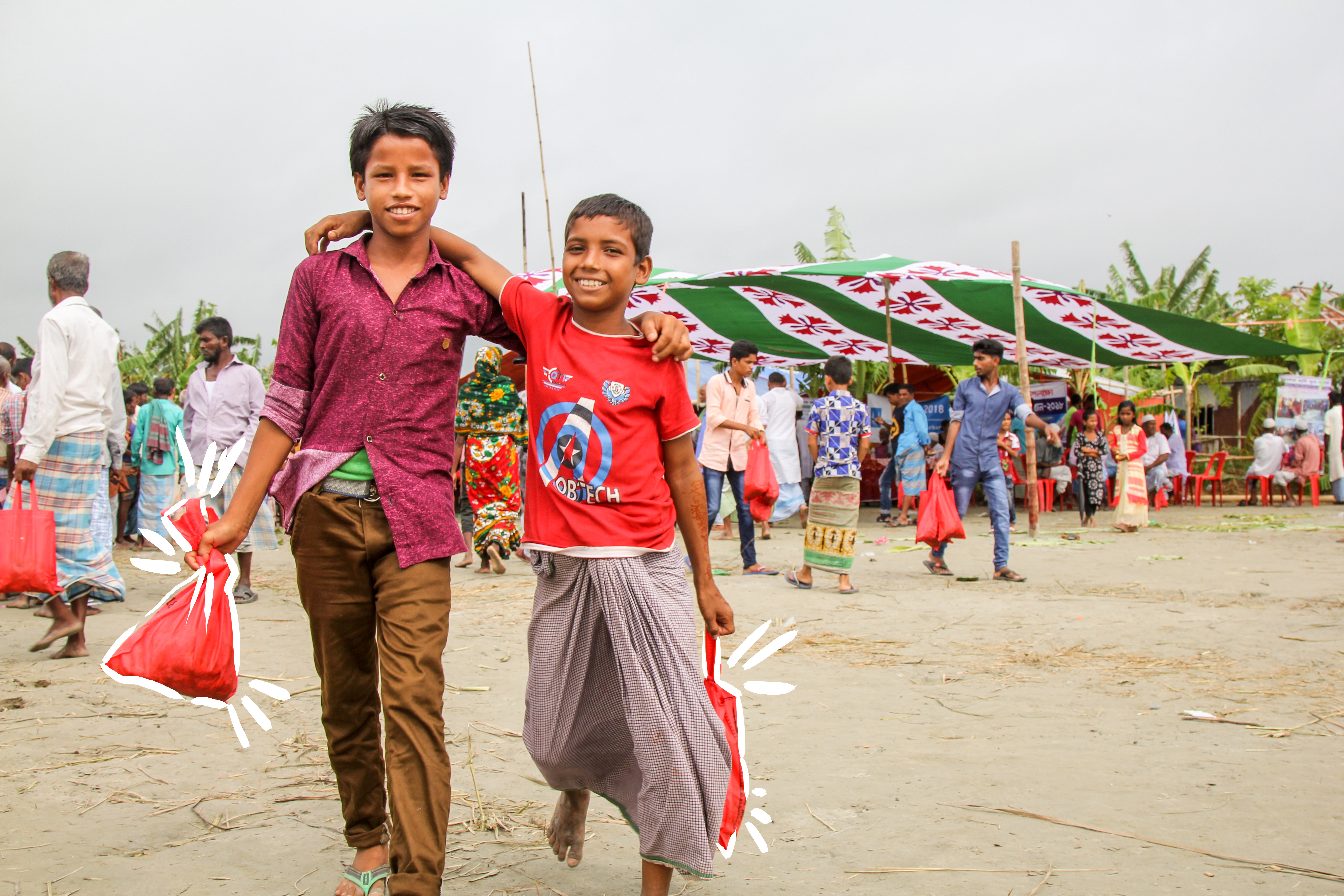Dignity on the Streets of Philadelphia
Lina Hashem is a Writer at Islamic Relief USA. She recently attended Day of Dignity in Philadelphia and wrote about her experience.
Lamarr could be anything. He’s smart as a whip. He loves to read, and he researched Islamic Relief USA before spreading the word about Day of Dignity. He loves his bike like richer men love their sports cars, and he prides himself on his clean, neat clothes.
He also sleeps on a bench in a Philadelphia park and knows where to turn up for food and clothes. On Oct. 8, at Day of Dignity in Philadelphia, he had ticket number 199.
I don’t know why Lamarr is homeless. All I know is that he’s every bit as worthy as respect as your own supervisor at work. After the Philadelphia Day of Dignity — hosted by the local Amana Foundation and sponsored by Islamic Relief USA — I can’t get Lamarr and the other attendees out of my mind.
As he eats his chicken and pasta, Lamarr casts a glance at a few overstuffed bags around him. He only takes what he needs. He spreads his new sweatshirts, scarves, underclothes and blankets out on the table, looking pleased, and then he packs them up neatly. He carefully slides the long johns (his favorite) into the bag upright so they’ll support the sides of his blue plastic bag.
 Every Saturday, Lamarr helps some church ladies set up tents and carry food outside for free meals. Then he sits down to eat.
Every Saturday, Lamarr helps some church ladies set up tents and carry food outside for free meals. Then he sits down to eat.
The week before Day of Dignity, he told everyone at the church meal about the Islamic Relief USA event, and people at the park too. He had asked the organizer for extra fliers. When he only had one left, he stopped in a church to ask someone to make 300 copies for him. He gave them all out in one week, and he had other people take a picture of the flier on their phones.
“It’s a lot of people in need in Philadelphia,” he says, “so why not let somebody else get blessed?”
He checked out Islamic Relief USA before he passed out the fliers. “I ain’t promoting nothing bad. This is all good, honest helping people. It’s just love.”
‘A Bad Fall’
A few tables over, Tim smiles, enjoying the company. Raw feelings aren’t far beneath the surface, but he’s holding tight to happiness right now.
“I think it’s a wonderful thing,” he says. “It shows there are still good people who care in the world.
“Everybody became homeless for a different reason. It’s not so much about stuff but showing they care. We’re not forgotten. It shows you care and that makes me feel a little better about myself. We are somebody.”
Tim is 53 and it’s the first time he’s been homeless. “I had a job but my hand is messed up so I’m unable to work,” he says, rubbing his hand. He has a three-bedroom home waiting for him, though, with his wife and son in it. But he has to quit drinking before he can go back there. His wife asked him to leave because of the drinking.
He’s glad he’s not on the street, because he knows that would push him into depression. But he doesn’t like the shelter either: “You meet some shady people. I’ve seen people get stabbed. It’s not a good place.”
“I need to go back home and be the foundation of my family,” he says. “It’s miserable. I’ve never been in this position before. I’m going to get there.”
In the meantime, a friendly face means the world — especially from the kids who were handing out blankets and clothes.
“The kids so cheery and happy,” he says. “They could be playing video games at home. They greet us with a smile. … It’s not even about the free stuff — it’s just that ya’ll showed up.”
Friendly Faces in Philadelphia
Over at Lamarr’s table, Kaye introduces herself as “Special K” with a laugh.
Isaac sits nearby with his wife Donna. They found out about Day of Dignity from Lamarr.

“We were staying in the park and he told us,” Isaac said. “This is such a blessing, alhamdulillah. I thank the Muslims. I was just thinking, when I was eating with my fingers — the Prophet Muhammad used to eat with his fingers.”
Robert eats surrounded by bags full of clothes and toiletries he’s picked up for people who couldn’t come out today. He manages a recovery house, and the things he’s bringing back will be shared by 15 “blackouts” — new guys who aren’t allowed to leave the recovery house yet, because they can’t be out in the streets near the drugs that still tempt them so much.
“They’re just starting out,” he said. “This enables them to get a start. … You feel better about yourself when you’re able to be clean like the people that surround you.”
The tent begins emptying as Day of Dignity winds down. Everyone heads back out into the dreary rain, going their separate ways. Lamarr clears everyone’s empty plates off the table and leaves with his clothes.
I only got to talk to these men and women for a few hours, but they’re in my heart. I want Tim to get back home — I hope he comes next year to tell us he’s back on his feet. I want Lamarr to find a job where his talents will be appreciated. I don’t know where their stories will go, but no matter what, they have my respect.
Dignity is real, and it belongs to every last one of us, no matter where we sleep.



